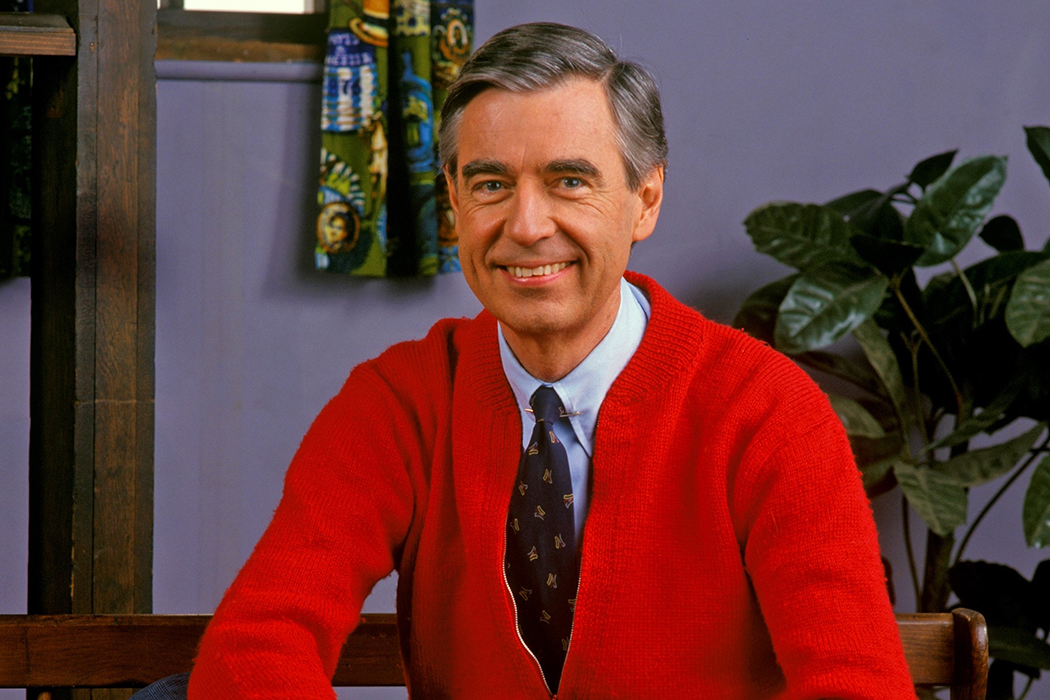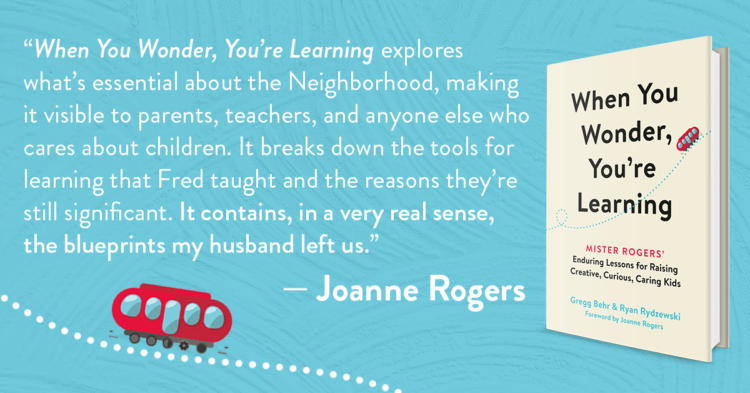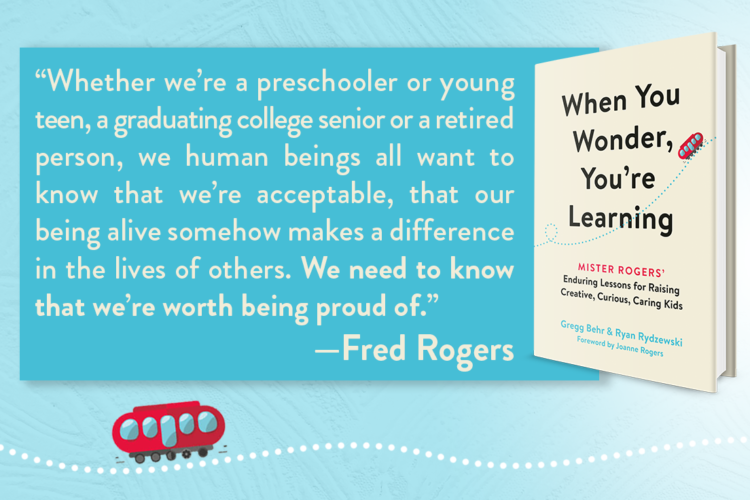
Must read for parents: Mister Rogers’ lessons for raising ‘curious, creative, caring kids’
Only Fred Rogers could write a song called “Going to Marry Mom.”
It’s about a little boy about 4 or 5, who feels as if his entire world revolves around a parent. What’s remarkable about the song is how Rogers turned the sentiment into something profound as the mother replies to her child:
I hope you will marry
Maybe someone like me
And as you grow more and more like your daddy
You’ll find a lady like me.
The song is offered as an example of how Rogers thought “very deeply and very intentionally” about every word he wrote and how kids would react, says Ryan Rydzewski, co-author with Gregg Behr of the new book, “When You Wonder, You’re Learning: Mister Rogers’ Enduring Lessons for Raising Creative, Curious, Caring Kids” (Hachette).

“He was able to remember what it’s like to be a kid,” Rydzewski says. “And a lot of the best educators, a lot of people who are parents or neighbors or caring adults, the people who interact really well with kids, try to remember what it’s like being a kid, to anticipate how their words or actions, their presence, is going to be interpreted.”
“When You Wonder, You’re Learning” is based on the indelible work Fred Rogers produced from 1968 to 2001 as host of “Mister Rogers’ Neighborhood.” Rydzewski, an award-winning science and education reporter, and Behr, executive director of The Grable Foundation and co-chair for Remake Learning, spent three years talking to educators, sifting through tapes of programs and researching the beloved children’s show host.
What they produced is more than a compendium of Rogers’ homespun homilies and lessons about how to treat children. “When You Wonder, You’re Learning” serves as a guidebook for parents and educators about helping kids live a life based on good acts and good works. What Rogers termed his “tools for learning” are now considered to be essential skills and mindsets for kids in a digital age.
Writing the book challenged the authors to think about how they were living “professionally and personally,” Behr says. “And I suspect some of that probably comes through, not deliberately, but you see ourselves in that book. Because it’s as much about how we, as adults, can support kids as we, as adults, should conduct ourselves in support of a better, more loving community, neighborhood and society.”
Kids are dealing with unique obstacles and situations two decades into the 21st century. The Covid pandemic has wreaked havoc on educational systems, impacting families socially, economically and spiritually. Technology is evolving at a frantic pace. And there’s a divide in the country caused by political divisions that can be scary for kids.
How would Fred Rogers address such a situation?

Actually, he did. Behr points out that 1968 also was a period of “massive unrest on the cusp of massive technological revolution and societal shifts.”
“And I think Fred’s admonition to us was to stop and notice the things that are timeless and classic,” Behr adds. “To be present to the kids in our lives. You, as an adult, can be open to wondering just as much as they are, and explore together with your young people the opportunities to create and wonder and invent, and to be present to that as well.”
Rydzewski adds: “His message wasn’t ‘be like me.’ His message was to be fully yourself. And share that with the world and help others be themselves and celebrate that.”
While Rogers imbued his work with a subtle Christianity — he was an ordained Presbyterian minister — there was an extraordinary depth to “Mister Rogers’ Neighborhood.” His programs were not haphazard skits written to elicit certain reactions, but finely tuned programs that featured Rogers’ interest in child development and social sciences.
“You don’t see the attention, deliberateness and science behind that work, because it’s made so effortlessly,” Behr says. “Fred Rogers was a learning scientist of his day. He studied with remarkable child development practitioners and researchers like Margaret McFarland, and her colleagues at the University of Pittsburgh, Erik Erickson and Benjamin Spock. … The design of Fred Rogers’ program, from the colors to the lighting to the music, everything comes across as something that’s approachable but there’s deep science behind all of those deliberate decisions in the presentation of that program.”
One of the things Behr and Rydzewski wanted to do with “When You Wonder, You’re Learning” was to reframe the way Rogers is perceived. Yes, he was the host of a beloved children’s program, a loving, caring person on television, who entertained millions of kids and parents, Behr says.
But Rogers’ innovations are sometimes overlooked.
“He was a radical,” Behr says. “I don’t think we think often enough about that side of him, that he was disruptive using the technology medium of his day to support and educate and inspire kids. Part of the book, too, is elucidating that part of his important legacy.”
“When You Wonder, You’re Learning” goes on sale in April, but you can reserve a copy now.

